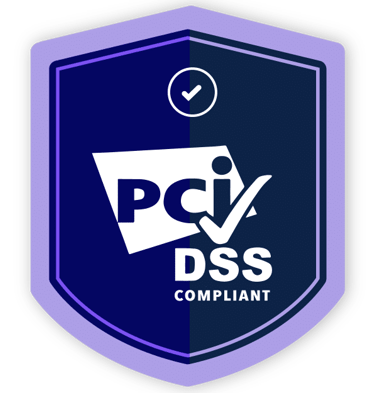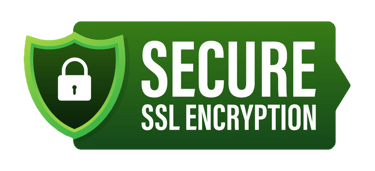Understanding the Importance of Reporting Abuse or Neglect in Hospice Care: A Guide for Providers
Learn about the importance of reporting abuse or neglect in hospice care, mandatory reporting requirements, and how HealthBridge Consulting helps ensure compliance and improve care quality during surveys.


Understanding the Importance of Reporting Abuse or Neglect in Hospice Care: A Guide for Providers
Hospice care is dedicated to providing compassionate and supportive services to individuals facing the end of life. However, during the course of hospice care, it’s possible that incidents of abuse, neglect, or other mistreatment may occur. Ensuring that these incidents are reported and handled promptly is essential to maintaining a high standard of care and upholding the rights of patients.
This article explores the critical process of identifying and reporting abuse or neglect in hospice care settings, and why it’s important for both surveyors and hospice providers to adhere to mandatory reporting requirements.
1. Recognizing Abuse and Neglect in Hospice Care
During hospice surveys, surveyors may discover potential signs of abuse, neglect, injuries of unknown origin, or misappropriation of patient property. Identifying these issues promptly is critical to ensuring that patients receive the proper care they deserve and are protected from harm. Common forms of abuse in hospice care include physical, emotional, and financial abuse, all of which have serious implications for patient safety and dignity.
It’s also important to recognize that patients in hospice care are often vulnerable due to their medical conditions, making them prime targets for mistreatment. Therefore, the role of surveyors becomes even more vital in identifying, investigating, and ensuring that incidents are properly reported.
2. Mandatory Reporting Requirements
One of the primary responsibilities of hospice providers, as well as their employees and contracted suppliers, is to report any suspected abuse, neglect, or mistreatment in compliance with state and federal regulations. Both federal and state law set clear guidelines for mandatory reporting, and all hospice providers must be well-versed in these rules to avoid legal consequences and to protect patient well-being.
States often have their own specific reporting protocols, which may require providers and employees to report suspicions of abuse or neglect to the appropriate state authorities, such as local law enforcement, the state survey and certification agency, or adult protective services. Federal regulations, including those tied to Medicare and Medicaid, also impose reporting obligations, ensuring that every hospice provider is held to the highest standards of accountability.
3. Surveyor’s Role in Identifying Abuse or Neglect
If a surveyor identifies possible abuse or neglect during a survey, the first step is to thoroughly investigate the circumstances surrounding the incident. This investigation typically involves reviewing patient records, interviewing staff members, and confirming whether the hospice has adhered to state and federal reporting requirements. If the hospice provider has not already reported the suspected violation, the surveyor must take immediate action.
Surveyors should request a copy of the report that was made to the appropriate authorities, verifying whether the report was submitted within five days of the incident. This quick response time is crucial for preventing further harm and ensuring that the appropriate authorities are involved as soon as possible.
4. The Importance of Immediate Action and Collaboration
In cases where a surveyor cannot verify that a report has been filed, they must act swiftly to ensure that the violation is reported. Surveyors should immediately consult with their supervisor and notify the relevant authorities or law enforcement agencies about the suspected abuse or neglect. This rapid escalation process is critical for protecting patients and ensuring that corrective actions are taken promptly.
Furthermore, hospice providers are not exempt from their obligations to report any suspected violations. Even if a report has been made, hospice staff must be vigilant in following up on any ongoing investigations or concerns. The involvement of the appropriate authorities ensures that patients are kept safe and that justice is served when necessary.
5. The Role of Hospice Providers in Preventing Abuse
Hospice providers have a responsibility to implement comprehensive training and monitoring programs to prevent abuse and neglect from occurring in the first place. Providers should foster a culture of transparency, accountability, and respect for patient rights. This includes offering training for all staff members on how to recognize the signs of abuse, how to report suspected incidents, and how to handle sensitive patient situations with the utmost care.
It is essential for hospice providers to establish clear protocols for reporting and addressing abuse or neglect within their organization. By creating a proactive environment where staff feel comfortable reporting concerns, providers can mitigate the risks of abuse and ensure that patients receive the best possible care in a safe, supportive environment.
6. The Role of HealthBridge Consulting in Ensuring Compliance
At HealthBridge Consulting, we understand the complexities of regulatory compliance in hospice care and the critical importance of reporting abuse or neglect. Our team is equipped with the knowledge and experience to guide hospice providers through the maze of federal and state reporting requirements, ensuring that you meet all necessary regulations and maintain the highest standards of patient care.
We offer expert consulting services for hospice organizations looking to improve their compliance, navigate the survey process, and foster a safe and supportive environment for their patients. Whether you need assistance with training your staff, reviewing your current policies, or handling specific survey concerns, HealthBridge Consulting is here to help.
Conclusion
Hospice care is about compassion and comfort in a patient’s final stages of life. Ensuring that any cases of abuse or neglect are swiftly identified and reported is an essential part of providing high-quality care. By adhering to mandatory reporting regulations and maintaining a strong commitment to patient safety, hospice providers can uphold their responsibility to patients and their families. HealthBridge Consulting is dedicated to helping your hospice organization stay compliant, improve care quality, and ensure the safety of all patients under your care. Let us assist you in navigating the complexities of surveys, reporting, and regulatory compliance.
CMS Form 855A
How to Enroll in Medicare
National Provider Identifier (NPI) Application – NPPES
CMS State Operations Manual – Appendix B (Home Health)
Oasis Data Sets





